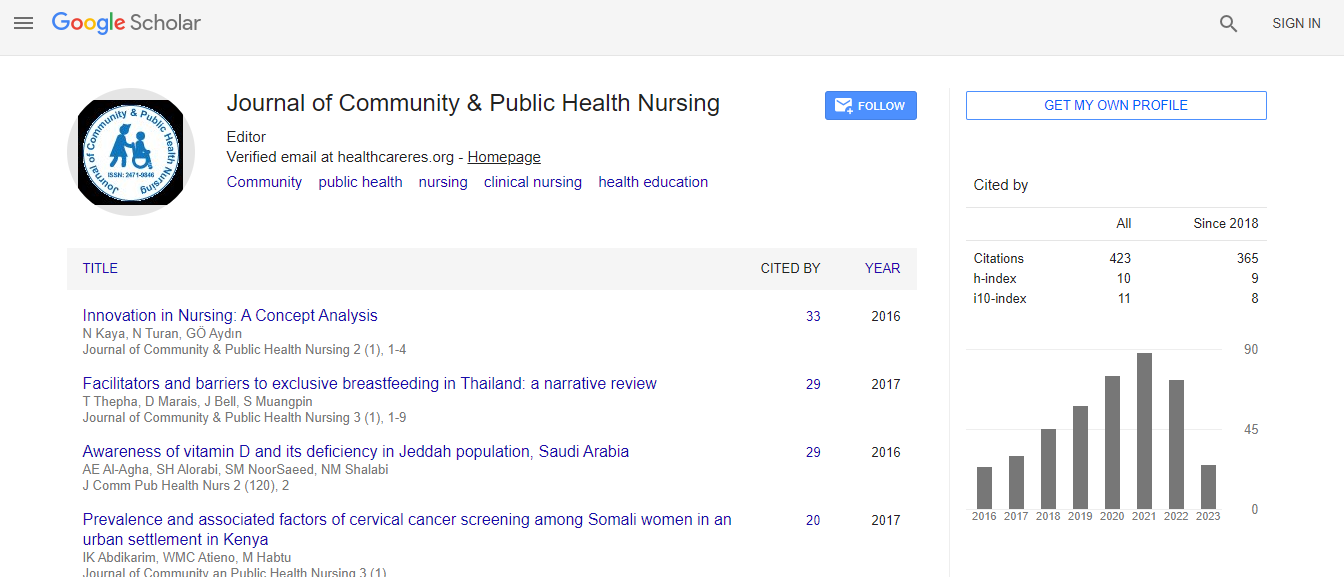Research Article
Cultural Awareness in Nursing is a Progressive Growth
Renee Martin-Thornton*Department of Student Health and Psychological Services, Riverside City College, USA
- Corresponding Author:
- Renee Martin-Thornton, Ph.D.
MSN/MBA, RN, Director
Department of Student Health and Psychological Services
Riverside City College, 4800 Magnolia Avenue
Riverside, CA 92506, USA
Tel: (951) 222-8048
Fax: (951) 222-8815
E-mail: Renee.Martin-Thornton@rcc.edu
Received date: April 12, 2017; Accepted date: May 24, 2017; Published date: May 31, 2017
Citation: Martin-Thornton R (2017) Cultural Awareness in Nursing is a Progressive Growth. J Comm Pub Health Nurs 3:177. doi:10.4172/2471-9846.1000177
Copyright: © 2017 Martin-Thornton R. This is an open-access article distributed under the terms of the Creative Commons Attribution License, which permits unrestricted use, distribution and reproduction in any medium, provided the original author and source are credited.
Abstract
During the past four decades, researchers have developed strategies used in nursing programs to promote cultural awareness. Minimal research has focused on the graduating associate degree-nursing students to determine if a relationship existed between the use of an integrated cultural curriculum and the nursing student’s level of cultural awareness. The associate degree-nursing program accreditation, statistical and benchmark reports mandated the integration of diversity content, local, national and worldwide perspectives in the curricula. Additionally societal and cultural patterns must be integrated across the entire nursing school curricula.
In this study, a correlational approach was implemented to determine if relationships existed between the integrated cultural curriculum and level of cultural awareness in graduating associate degree nursing students in a large metropolitan area, such as in Los Angeles. In addition, the focus was to determine if differences existed in the level of cultural awareness among the graduating associate degree-nursing students based on demographic factors (gender, ethnicity and age). The Cultural Awareness Scale (CAS) was used during this study. Based on the results of the 51 participants surveyed in this study, the cultural awareness level may be attributed to several factors, including the integrated cultural curricula. The nursing student’s learning style, perception of faculty, personal experiences and cultural encounters may also contribute to the cultural awareness level.

 Spanish
Spanish  Chinese
Chinese  Russian
Russian  German
German  French
French  Japanese
Japanese  Portuguese
Portuguese  Hindi
Hindi 
